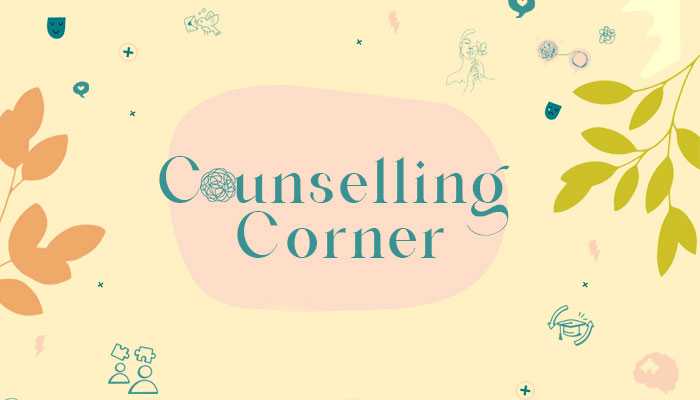Conflict with friend is taking a toll on my mental health
"She's being unreasonable, despite knowing my limitations"
November 15, 2023
Hi Haya!
I’m having a difficult time dealing with a friend, who is habitual of making a big deal out of everything. I recently reconnected with this friend after four years. Despite letting go of past issues, the same toxic patterns in her behaviour have started resurfacing. This time around, she is super excited about her upcoming birthday and has invited all her friends, even those with whom I’m not too familiar.
Unfortunately, due to my demanding 14-hour workday and financial constraints, I can't participate in her celebrations. When I informed her about it, she burst into tears and spent hours crying. She even fabricated a story for her fiancé, who then called and pressured me to attend the birthday party. The next day, I received about 10 voice notes, including some from her mother, indirectly urging me to reconsider my decision.
It is not about me being a bad friend or throwing tantrums, but her being unreasonable, despite being well aware of my limitations. We’re both adults, but it is difficult to make her understand that life can be different for everyone. It's a tricky situation, and I'm unsure how to handle it. Any advice on how one should deal with such friends?
— Done with toxic friendship

Dear frustrated friend,
What you are experiencing sounds extremely frustrating and challenging. It is evident that this situation is leaving you feeling drained, overwhelmed, and second-guessing yourself.
While you’ve provided a comprehensive overview, it would be helpful to understand the reasons for ending the friendship initially, who initiated the reconnection and whether past issues were discussed when you reconnected after four years.
The recurrence of toxic patterns as stated by you raises concerns suggesting that this dynamic might have been present in the relationship before.
Let’s dive right in and explore constructive ways to navigate this challenging situation.
Start by communicating assertively and expressing empathy. Clearly convey that while you acknowledge and understand the importance of her birthday due to pressing work demands and financial constraints you are not able to make it. Use “I” statements to assertively express your limitations. For example, say, "I am unable to attend due to my work schedule and financial constraints,” or "I know your birthday is important to you and I so wanted to be there but I won't be able to make it.”
Further, create space and establish open communication, allowing her space to express her feelings and perspectives.
You may also propose an alternate solution suggesting a celebration for her later that suits both of you.
It is critical for you to establish clear boundaries by expressing that certain behaviours such as guilt-tripping are unacceptable. Communicate your expectations. For example, say “I value our friendship, but I need you to understand that I cannot take responsibility for things beyond my control, and I do not appreciate being guilt-tripped.”
Lastly, I encourage you to evaluate the friendship objectively. Consider whether the relationship is bringing more stress than joy and assess the balance between positive and negative aspects.
Some helpful prompts to deal with this are listed below:
See friendship value: Ask yourself if the relationship is causing you more stress and negativity or joy?
Check in with yourself: How does this relationship make me feel? What value is she adding in my life? How do I feel around her?
Healthy relationships bring out the parts in us that we like most in ourselves.
In addition, work on recognising unhealthy patterns and behaviours within the relationship and take this as an opportunity to perhaps explore your own patterns that may need your attention. Relationships serve as mirrors reflecting undiscovered aspects of ourselves.
Returning to damaged and unhealthy relationships without addressing underlying issues does not lead to meaningful change, which requires effort from both parties.
Changed behaviour (starting with acknowledgement and working towards behaviour change) is the only genuine apology. If despite communication and boundary setting there is no positive change, consider making a choice that aligns with your well-being. What that will look like for you I can’t say, you would need to explore and see what works best for you.
Remember, you can't control others' actions, but you have control over your own. Some people will not be ready to change and that’s ok. You need to decide what matters for you. The things we complain about are most often the indicators of where we need healthier boundaries.
Based on exploring all of the above, come to an outcome of how you choose to show up in the relationship.
Understand that people show us who they are, it is our choice to believe it or not, and remember, people’s behaviour is how they feel about themselves.
Haya

Haya Malik is a psychotherapist, Neuro-Linguistic Programming (NLP) practitioner, corporate well-being strategist and trainer with expertise in creating organisational cultures focused on well-being and raising awareness around mental health.
Send her your questions to [email protected]
Note: The advice and opinions above are those of the author and specific to the query. We strongly recommend our readers to consult relevant experts or professionals for personalised advice and solutions. The author and Geo.tv do not assume any responsibility for the consequences of actions taken based on the information provided herein. All published pieces are subject to editing to enhance grammar and clarity.













